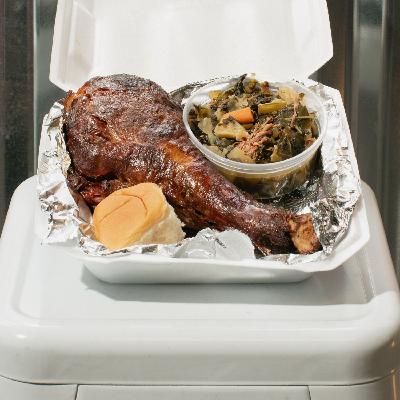Discover The Daily
The Daily

The Daily
Author: The New York Times
Subscribed: 1,948,156Played: 115,191,459Subscribe
Share
© 2020-2021 THE NEW YORK TIMES COMPANY; The New York Times encourages the use of RSS feeds for personal use in a news reader or as part of a non-commercial blog, subject to your agreement to our Terms of Service.
Description
This is what the news should sound like. The biggest stories of our time, told by the best journalists in the world. Hosted by Michael Barbaro, Rachel Abrams and Natalie Kitroeff. Twenty minutes a day, five days a week, ready by 6 a.m.
Subscribe today at nytimes.com/podcasts or on Apple Podcasts and Spotify. You can also subscribe via your favorite podcast app here https://www.nytimes.com/activate-access/audio?source=podcatcher.
Subscribe today at nytimes.com/podcasts or on Apple Podcasts and Spotify. You can also subscribe via your favorite podcast app here https://www.nytimes.com/activate-access/audio?source=podcatcher.
1383 Episodes
Reverse
The writer and lawyer has been documenting the occupation for decades. Somehow, he maintains hope.Thoughts? Email us at theinterview@nytimes.comWatch our show on YouTube: youtube.com/@TheInterviewPodcastFor transcripts and more, visit: nytimes.com/theinterview
Subscribe today at nytimes.com/podcasts or on Apple Podcasts and Spotify. You can also subscribe via your favorite podcast app here https://www.nytimes.com/activate-access/audio?source=podcatcher. For more podcasts and narrated articles, download The New York Times app at nytimes.com/app.
With anxieties building over affordability, President Trump made a push to reassure Americans just as the government released long-awaited data that raised new questions about the economic health of the nation.Tony Romm, who covers economic policy for The New York Times, discusses how Mr. Trump is trying to take control of the issue, and Ben Cassleman, The Times’s chief economics correspondent, explains what the latest numbers tell us about why people are still so frustrated.Guest:Tony Romm, a reporter in Washington covering economic policy and the Trump administration for The New York Times.Ben Casselman, the chief economics correspondent for The New York Times.Background reading: Here are six takeaways from Mr. Trump’s address to the nation.With tariffs unpopular and prices still high, the White House has teased the promise of tariff rebates and large tax refunds next year.Photo: Doug Mills/The New York TimesFor more information on today’s episode, visit nytimes.com/thedaily. Transcripts of each episode will be made available by the next workday.
Subscribe today at nytimes.com/podcasts or on Apple Podcasts and Spotify. You can also subscribe via your favorite podcast app here https://www.nytimes.com/activate-access/audio?source=podcatcher. For more podcasts and narrated articles, download The New York Times app at nytimes.com/app.
This week, despite a last-ditch effort by some House Republicans to strike a deal on health care, Congress remains deadlocked on whether to extend support for millions of Americans who get their health care through the Affordable Care Act.Margot Sanger-Katz, who covers health care policy, explains who will be most affected by the decision.Then, we hear directly from some of the Americans who will now face a decision: whether to keep paying for rising insurance costs or to risk going without it.Guest: Margot Sanger-Katz, a reporter for The New York Times who covers health care policy and government spending.Background reading: Four Republicans joined Democrats’ bid to force a vote on health subsidies.Obamacare users will be asked to pay more for plans that cover less.Photo: Eric Lee for The New York TimesFor more information on today’s episode, visit nytimes.com/thedaily. Transcripts of each episode will be made available by the next workday.
Subscribe today at nytimes.com/podcasts or on Apple Podcasts and Spotify. You can also subscribe via your favorite podcast app here https://www.nytimes.com/activate-access/audio?source=podcatcher. For more podcasts and narrated articles, download The New York Times app at nytimes.com/app.
Rob Reiner, the classic film director, and his wife, Michele Singer Reiner, were killed on Sunday at their home in the Brentwood neighborhood of Los Angeles. On Tuesday, prosecutors charged the couple’s son, Nick, with first-degree murder.Julia Jacobs, an arts and culture reporter for The New York Times, explains what we have learned about the deaths, and Wesley Morris, a critic at The Times, discusses why many of Rob Reiner’s films are so beloved.Guest:Julia Jacobs, who reports on culture and the arts for The New York Times.Wesley Morris, a critic at The New York Times who writes about art and popular culture.Background reading: Rob Reiner, the actor who went on to direct classic films, died at 78.Nick Reiner was formally charged on Tuesday with murdering his parents.Photo: Universal/Getty ImagesFor more information on today’s episode, visit nytimes.com/thedaily. Transcripts of each episode will be made available by the next workday.
Subscribe today at nytimes.com/podcasts or on Apple Podcasts and Spotify. You can also subscribe via your favorite podcast app here https://www.nytimes.com/activate-access/audio?source=podcatcher. For more podcasts and narrated articles, download The New York Times app at nytimes.com/app.
As 2025 comes to an end, The Sunday Special is looking back on the year in culture.This week, we’re listening to the songs and albums that defined the year, for better or worse. Gilbert Cruz is joined by Caryn Ganz and Lindsay Zoladz from The Times’s pop music desk to discuss some of the biggest and best releases of 2025.Albums and songs mentioned in this episode:Bad Bunny, “Debí Tirar Más Fotos”Lady Gaga, “Mayhem”Justin Bieber, “Daisies”Chappell Roan, “The Giver” and “The Subway”Sabrina Carpenter, “Manchild”Doechii, “Alligator Bites Never Heal”Taylor Swift, “The Life of a Showgirl”Morgan Wallen, “I’m the Problem”Ghost, “Skeletá”Dijon, “Baby”Geese, “Getting Killed”Water From Your Eyes, “It’s a Beautiful Place”PinkPantheress, “Fancy That”Lily Allen, “Tennis”Ella Langley, “Choosin’ Texas”Sleigh Bells, “Bunky Becky Birthday Boy”Hayley Williams, “Ego Death at a Bachelorette Party”Turnstile, “Never Enough”On Today’s EpisodeCaryn Ganz is the pop music editor at The Times.Lindsay Zoladz is a pop music critic at The Times and the writer of The Amplifier newsletter.Additional ReadingBest Albums of 2025Best Songs of 2025 Photo Illustration by The New York Times; From left, Angela Weiss/AFP — Getty Images (Lady Gaga); OK McCausland for The New York Times (Geese); Erika Santelices/Reuters (Bad Bunny); Helle Arensbak/AFP -- Getty Images, via Ritzau Scanpix (PinkPantheress)
Subscribe today at nytimes.com/podcasts or on Apple Podcasts and Spotify. You can also subscribe via your favorite podcast app here https://www.nytimes.com/activate-access/audio?source=podcatcher. For more podcasts and narrated articles, download The New York Times app at nytimes.com/app.
The first week of December at The New York Times is known as “Cookie Week.” Every day, for seven days, our cooking team highlights a new holiday cookie recipe. This year’s batch features flavors that aren’t necessarily traditional holiday ones — or even, for that matter, flavors. Instead, they draw inspiration from family night at the movies, drinks like Vietnamese Coffee, and perhaps most surprisingly, an Italian deli meat.In this edition of the Sunday Special, Gilbert Cruz talks with Melissa Clark and Vaughn Vreeland from New York Times Cooking about this year’s cookies, and they answer questions from readers about how to navigate cooking and baking during the holidays.Background Reading:These 7 Cookies Will Be the Life of Every PartyMelissa Clark is a food reporter and columnist for The Times.Vaughn Vreeland is a supervising video producer for NYT Cooking and writes the “Bake Time” newsletter.Audio produced by Tina Antolini and Alex Barron with Kate LoPresti. Edited by Wendy Dorr. Engineered by Rowan Niemisto. Original music by Daniel Powell and Diane Wong. Photo credit: Rachel Vanni for The New York Times.
Subscribe today at nytimes.com/podcasts or on Apple Podcasts and Spotify. You can also subscribe via your favorite podcast app here https://www.nytimes.com/activate-access/audio?source=podcatcher. For more podcasts and narrated articles, download The New York Times app at nytimes.com/app.
The holiday season is here, which means it’s the time to think of great gifts for everyone on your list. While it can feel like a daunting task to choose thoughtful, personalized presents, we’ve got a fix for you: books.On this edition of The Sunday Special, Gilbert is joined by Joumana Khatib and Sadie Stein, editors at the Book Review, for a conversation about the best books to give your family and friends. Joumana and Sadie will share what excited them most this year and also provide recommendations for giftees in very specific categories.Books mentioned in this episode:“The Colony,” Annika Norlin“Perfection,” Vincenzo Latronico“Things: A Story of the 60s,” Georges Perec“The Bee Sting,” Paul Murray“The Loneliness of Sonia and Sunny,” Kiran Desai“The Director,” Daniel Kehlmann“Playworld: A Novel,” Adam Ross“A Marriage at Sea,” Sophie Elmhirst“Entertaining is Fun!,” Dorothy Draper“The Thursday Murder Club,” Richard Osman“The Mysterious Case of the Alperton Angels,” Janice Hallett“Roald Dahl’s Revolting Recipes,” Roald Dahl“Mrs. Manders’ Cook Book,” Sarah Manders, edited by Rumer Godden“Halleluja! The Welcome Table,” Maya Angelou“The Pat Conroy Cookbook: Recipes of My Life,” Pat Conroy“Les diners de Gala,” Salvador Dalí“Diaghilev’s Empire: How the Ballets Russes Enthralled the World,” Rupert Christiansen“Finishing the Hat and Look I Made a Hat,” Stephen Sondheim“Tonight in Jungleland: The Making of Born to Run,” Peter Ames Carlin“The Uncool: A Memoir,” Cameron Crowe“The Gales of November,” John U. Bacon“The Journals of Ralph Waldo Emerson,” Ralph Waldo Emerson“Cats in Color,” Stevie Smith“Archie and the Strict Baptists,” John Betjeman“Stories 1,2,3,4,” Eugène Ionesco“Trip: A Novel,” Amy BarrodaleOn Today’s Episode:Joumana Khatib is an editor at The New York Times Book Review.Sadie Stein is an editor at The New York Times Book Review.
Subscribe today at nytimes.com/podcasts or on Apple Podcasts and Spotify. You can also subscribe via your favorite podcast app here https://www.nytimes.com/activate-access/audio?source=podcatcher. For more podcasts and narrated articles, download The New York Times app at nytimes.com/app.
“Wicked” was one of the biggest movies of 2024. It was culturally ubiquitous, a box office smash and an Oscar nominee for Best Picture. Now, a year later, “Wicked: For Good” arrives in theaters to finish the tale of the complicated friendship between Glinda the Good Witch and Elphaba, the Wicked Witch of the West. Can “Wicked: For Good” be the sensation that its predecessor was? Will it inject new life into a movie business that has suffered a historically bad business year? Will it satisfy the legions of “Wicked” fans who have been waiting to see their favorite musical brought to the big screen?Gilbert Cruz is joined by Kyle Buchanan, a pop culture reporter for The New York Times who profiled the stars of “Wicked,” and Madison Malone Kircher, a reporter for the Styles desk and affirmed “Wicked” fanatic, to discuss what “Wicked: For Good” means for the movies. On Today’s EpisodeMadison Malone Kircher is a reporter covering internet culture for The Times.Kyle Buchanan is a pop culture reporter and serves as The Projectionist, the awards season columnist for The New York Times.Photo: Universal Pictures Additional ReadingAriana Grande Still Has Surprises in StoreThere Have Been Dozens of “Wicked” Interviews. Why Did This One Go Viral?
Subscribe today at nytimes.com/podcasts or on Apple Podcasts and Spotify. You can also subscribe via your favorite podcast app here https://www.nytimes.com/activate-access/audio?source=podcatcher. For more podcasts and narrated articles, download The New York Times app at nytimes.com/app.
There was once a time when documentaries could be found only on public television or in art-house cinemas. But today, documentaries are more popular and accessible than ever, with streaming services serving up true crime, celebrity documentaries, music documentaries and so much more.On today’s Sunday Special, Gilbert is joined by The New York Times’s chief television critic, James Poniewozik, and Alissa Wilkinson, a Times film critic, to talk about the documentaries that are worth your viewing time. On Today’s Episode:James Poniewozik is the chief TV critic for The Times.Alissa Wilkinson is a movie critic at The Times, and writes the Documentary Lens column. Background Reading:What ‘The American Revolution’ Says About Our Cultural Battles‘Come See Me in the Good Light’: The Sweetness After a Terminal Diagnosis Discussed on this episode:“The American Revolution,” 2025, directed by Ken Burns, Sarah Botstein and David Schmidt“The Alabama Solution,” 2025, directed by Andrew Jarecki and Charlotte Kaufman“The Jinx: The Life and Deaths of Robert Durst,” 2015, directed by Andrew Jarecki“Making a Murderer,” 2015, directed by Laura Ricciardi and Moira Demos“The Yogurt Shop Murders,” 2025, directed by Margaret Brown“The Perfect Neighbor,” 2025, directed by Beet Gandbhir“The Last Dance,” 2020, directed by Jason Hehir“Copa 71,” 2023, directed by Rachel Ramsay and James Erkine“Cheer,” 2020, created by Greg Whiteley“Last Chance U,” 2016, directed by Greg Whiteley, Adam Ridley and Luke Lorentzen“Pee-wee as Himself,” 2025, directed by Matt Wolf“The Remarkable Life of Ibelin,” 2024, directed by Benjamin Ree“Ladies & Gentlemen … 50 Years of SNL Music,” 2025, directed by Questlove“Cameraperson,” 2016, directed by Kirsten Johnson“An American Family,” 1973, created by Craig Gilbert“Look Into My Eyes,” 2024, directed by Lana Wilson“When We Were Kings,” 1996, directed by Leon Gast Photo: Mike Doyle/American Revolution Film Project and Florentine Films
Subscribe today at nytimes.com/podcasts or on Apple Podcasts and Spotify. You can also subscribe via your favorite podcast app here https://www.nytimes.com/activate-access/audio?source=podcatcher. For more podcasts and narrated articles, download The New York Times app at nytimes.com/app.
This year has been a banner year for video games, with an abundance of surprise releases and unexpected hits.On this week’s Sunday Special, Gilbert Cruz talks with two fellow gamers — Zachary Small, a culture reporter, and Jason Bailey, an editor on The Times’s culture desk — about the state of the industry, the biggest releases and the games they loved playing in 2025. They also share their predictions for Game of the Year.On Today’s EpisodeZachary Small is a culture reporter for The Times.Jason M. Bailey is an editor on the culture desk, and oversees The Times’s video game coverage.
Subscribe today at nytimes.com/podcasts or on Apple Podcasts and Spotify. You can also subscribe via your favorite podcast app here https://www.nytimes.com/activate-access/audio?source=podcatcher. For more podcasts and narrated articles, download The New York Times app at nytimes.com/app.
The only thing Gilbert Cruz loves more than celebrating Halloween is watching scary movies. And between the classic horror franchises that span decades and the prestige original films of the current moment, he has seen hundreds of them. On today’s episode, Gilbert puts his knowledge to use in conversation with his fellow horror aficionados Jason Zinoman and Erik Piepenburg. They comb through a century of spooks, frights and screams to crown the Top 10 franchises in cinema history. Horror franchises discussed on this episode:“A Nightmare on Elm Street”“A Quiet Place”“Alien”“The Amityville Horror”“Candyman”“Child’s Play”“The Conjuring”“The Exorcist”“The Evil Dead”“Final Destination”“Friday the 13th”“Halloween”The Hannibal Lecter films“Hellraiser”“The Hills Have Eyes”“Insidious”“Jaws”“Night of the Living Dead”“The Omen”“Paranormal Activity”“Phantasm”“Poltergeist”“Psycho”“The Purge”“The Ring”“Saw”“Scream”“Terrifier”“The Texas Chainsaw Massacre”The Universal monster films“V/H/S” On Today’s Episode:Jason Zinoman is a critic at large for The Times and the author of “Shock Value: How a Few Eccentric Outsiders Gave Us Nightmares, Conquered Hollywood, and Invented Modern Horror.”Erik Piepenburg covers culture for The Times, and writes a monthly column about horror movies.Additional Reading:25 Jump Scares That Still Make Us JumpFive Horror Movies to Stream Now‘Good Boy’ Review: Sit. Stay. Scream. Photo: Michael Ochs Archives/Getty Images
Subscribe today at nytimes.com/podcasts or on Apple Podcasts and Spotify. You can also subscribe via your favorite podcast app here https://www.nytimes.com/activate-access/audio?source=podcatcher. For more podcasts and narrated articles, download The New York Times app at nytimes.com/app.
On Friday, “Springsteen: Deliver Me From Nowhere” will be released in theaters. Rather than chronicling Bruce’s entire life, the film focuses on the making of his stripped-down 1982 album “Nebraska” and on his concurrent mental health struggles.This movie is the latest in a long history of musician biopics featuring stars like Bob Dylan, Loretta Lynn, Eminem and Elvis Presley. Hollywood clearly loves telling the stories of influential artists.In this episode, Gilbert Cruz chats with Lindsay Zoladz, a pop music critic for The Times, and Joe Coscarelli, a Times culture reporter, about the tropes of the genre and their favorite films that break the mold.On Today’s Episode:Lindsay Zoladz, a pop music critic at The Times and the writer of The Amplifier newsletter.Joe Coscarelli, a culture reporter at The Times and co-host of “Popcast.”Additional Reading:The Boss Finally Gets a Biopic, Just Not the One We ExpectedHe’s Ringo. And Nobody Else Is.Why Music Movies Stink: ‘Back to Black’ + ‘The Idea of You’ ReactionsJoe Coscarelli’s “Bobby + Joanie” playlistPhoto: 20th Century Studios
Subscribe today at nytimes.com/podcasts or on Apple Podcasts and Spotify. You can also subscribe via your favorite podcast app here https://www.nytimes.com/activate-access/audio?source=podcatcher. For more podcasts and narrated articles, download The New York Times app at nytimes.com/app.
Broadway represents some of the best and most exciting of what American theater has to offer. But for many people, it’s inaccessible. Whether because of geography, cost or other considerations, most people will never sit in a Broadway theater and experience a play or a musical in person.For years, cast recordings have offered a way to experience Broadway shows at a remove. And now, in the streaming era, some Broadway shows are making themselves available to be watched remotely, in movie theaters and on television. Distance and expense aren’t the impediments they once were to culture lovers looking to experience world-class theater.In this episode, Gilbert Cruz talks with Jesse Green and Elisabeth Vincentelli, two of The New York Times’s culture writers, about new ways to experience some of the joys of theater from the comfort of your own home. On Today’s Episode:Jesse Green is a Culture correspondent, focusing primarily on the fine arts, including theater, classical music and art.Elisabeth Vincentelli writes about culture for The Times. Background Reading:Want to Listen to Musical Cast Albums? Our Top 10 Desert Island PicksTheater to Stream: Mark Rylance in ‘Twelfth Night,’ and MoreTimes Theater Fans on Their Favorite Musical Cast Albums Photo Illustration by The New York Times; Inset: Disney+
Subscribe today at nytimes.com/podcasts or on Apple Podcasts and Spotify. You can also subscribe via your favorite podcast app here https://www.nytimes.com/activate-access/audio?source=podcatcher. For more podcasts and narrated articles, download The New York Times app at nytimes.com/app.
Amusement parks are enduring vacation destinations for American families. The rides, the long lines for rides, the concessions, the long lines for concessions — these are practically familial rites of passage. Theme parks are also enormous moneymakers, with industry leaders such as Disney and Universal earning billions of dollars each year from their parks.In this episode, Gilbert Cruz chats with Brooks Barnes, who writes about show business (including theme parks), and Mekado Murphy, a film editor and thrill-seeker who reports on roller coasters. They talk about the state of the contemporary amusement park and the ups and downs of roller coasters around the world.On Today’s Episode:Mekado Murphy is the assistant film editor for The New York Times, and its unofficial roller coaster correspondent.Brooks Barnes covers Hollywood for The New York Times.Background Reading:Riding Your Way Through Epic UniverseSee the Real Live Man Who Grew Up in a CarnivalPhoto: Business Wire/Associated Press
Subscribe today at nytimes.com/podcasts or on Apple Podcasts and Spotify. You can also subscribe via your favorite podcast app here https://www.nytimes.com/activate-access/audio?source=podcatcher. For more podcasts and narrated articles, download The New York Times app at nytimes.com/app.
This month kicked off the big four fashion weeks: New York, London, Milan and Paris. Each year, designers, brands, influencers and celebrities flock to these events to see and be seen.On today’s episode, Gilbert sits down with Stella Bugbee and Jacob Gallagher, two of The Times’s foremost style experts and veterans of the fashion week circuit, to discuss clothes. They talk about what fashion week means in the frenetic fashion ecosystem of 2025, and they answer some listener questions about how to cultivate a personal style. On Today’s Episode:Stella Bugbee, the Styles editor for The New York Times.Jacob Gallagher, a fashion reporter for The New York Times.Background Reading:Armani’s Influence on New York Fashion WeekPhoto: Simbarashe Cha
Subscribe today at nytimes.com/podcasts or on Apple Podcasts and Spotify. You can also subscribe via your favorite podcast app here https://www.nytimes.com/activate-access/audio?source=podcatcher. For more podcasts and narrated articles, download The New York Times app at nytimes.com/app.
This month, The Times released a list of the 50 best restaurants in America. The Food desk’s reporters, critics and editors crisscrossed the country from Portland, Ore., to Deer Isle, Maine, to scout places formal and casual, big and small, experimental and classic. Their survey is an evocation of what it’s like to dine out, right now, in America.On today’s episode, Gilbert sits down with the Food reporters Priya Krishna and Brett Anderson, two contributors to the list, for a veritable feast of dining wisdom. They discuss what makes a restaurant worthy of the 50 best list, how they go about finding those restaurants, and the dining trends they’re loving and hating in 2025.On Today’s Episode:Priya Krishna, reporter and video host for New York Times Food and CookingBrett Anderson, reporter for New York Times Food and CookingBackground Reading:America’s Best Restaurants 2025Photo: Chase Castor for The New York Times
Subscribe today at nytimes.com/podcasts or on Apple Podcasts and Spotify. You can also subscribe via your favorite podcast app here https://www.nytimes.com/activate-access/audio?source=podcatcher. For more podcasts and narrated articles, download The New York Times app at nytimes.com/app.
The 77th Primetime Emmy Awards ceremony is tonight, honoring the best television shows released between June 2024 and May 2025. But before the festivities begin, Gilbert Cruz, the editor of The New York Times Book Review, would like to have a TV celebration of his own.On today’s episode, he gathers Jason Zinoman, a critic at large for The Times, and Alexis Soloski, a culture reporter for The Times, to “channel surf” through some of their favorite shows of the past year.On Today’s Episode:Jason Zinoman, a critic at large for The New York Times who writes a column about comedy.Alexis Soloski, a culture reporter for The New York Times. Additional Reading:The 9 People Who Check In to Every ‘White Lotus’Sympathy for the Devil, er Boss: In ‘The Studio,’ the Powerful Are on Defense
Subscribe today at nytimes.com/podcasts or on Apple Podcasts and Spotify. You can also subscribe via your favorite podcast app here https://www.nytimes.com/activate-access/audio?source=podcatcher. For more podcasts and narrated articles, download The New York Times app at nytimes.com/app.
As kids across America head back to school, Gilbert Cruz, the editor of The New York Times Book Review, is thinking about the books he read when he was in school.On today’s Sunday Special, Gilbert talks with the Book Review editor Sadie Stein and the author Louis Sachar (“Wayside School” series, “Holes”) about the books they read when they were students, and ways to encourage young readers today to keep reading.Additional reading10 Books for Kids Starting Preschool12 Books for Kids Starting Kindergarten15 Books for Kids Starting Middle SchoolFor a future Sunday Special, ask us your personal style questions.Photo: Brett Coomer / Houston Chronicle, via Getty Images
Subscribe today at nytimes.com/podcasts or on Apple Podcasts and Spotify. You can also subscribe via your favorite podcast app here https://www.nytimes.com/activate-access/audio?source=podcatcher. For more podcasts and narrated articles, download The New York Times app at nytimes.com/app.
Welcome to the Sunday Special, running now through the end of the year. Every Sunday, Gilbert Cruz, the editor of The New York Times Book Review, will talk with a rotating cast of Times critics and culture and lifestyle reporters about “the fun stuff”— pop culture, movies, TV, music, fashion and more.On today’s inaugural episode, Gilbert sits down with Jon Caramanica, a pop music critic at The Times, and Madison Malone Kircher, an internet reporter at The Times, to recap their cultural highs and lows of this summer.Photo: Stephane Mahe / Reuters
Subscribe today at nytimes.com/podcasts or on Apple Podcasts and Spotify. You can also subscribe via your favorite podcast app here https://www.nytimes.com/activate-access/audio?source=podcatcher. For more podcasts and narrated articles, download The New York Times app at nytimes.com/app.
Rachel Abrams and Natalie Kitroeff officially join Michael Barbaro as co-hosts of the show. Welcome to the next chapter.
Subscribe today at nytimes.com/podcasts or on Apple Podcasts and Spotify. You can also subscribe via your favorite podcast app here https://www.nytimes.com/activate-access/audio?source=podcatcher. For more podcasts and narrated articles, download The New York Times app at nytimes.com/app.





























As a Canadian, I have no concept of paying a doctor or a hospital for treatment. You just go in, get treated and leave. I listened to the stories on your episode and I cannot comprehend something that is a universal right in our country is the biggest single source of personal bankruptcy in the richest country in the world. My heart goes out to all of those affected.
Another feckless, futile discussion by a bunch of political failures. Not a word about masked thugs on the streets, disappearing innocent people into concentration camps and a drunken, sex pest "Secretary of War" murdering people in international waters. And one of you pipes up," were not in an authoritarian state"? You're all a big part of our current democracy threatening problem, flailing away here in pompous, smug delusions of righteousness having achieved nothing and then run away.
Talking about the concerns of tech company surveillance, then featuring an ad from Meta- absolutely wild work from this establishment.
Sounds like he's a sellout who is supporting a genocide by Netanyahu and his cronies.
I got a headache just listening to this.
👀
Natalie, Trump did not receive a mandate please. is New York Times editorial policy requiring you to say things like that to butter him up or do you really believe it come on now.
:| I am speachless
KRCLUB에 가입하여 진정한 고급 온라인 엔터테인먼트를 경험하세요!Website: https://www.krclub.co.kr
I enjoy how this podcast digs into the deeper stories behind daily life. It reminds me how much our emotions and relationships shift with timing too. I was recently reading about lunar cycles and how they influence connection on a site about the moon phase soulmate idea at https://moonphasesoulmates.com/ It gave me an interesting new way to think about personal rhythms.
Very interesting- good food for thought. 💡
This is a farcical interview. Trump has no authority to unilaterally declare a war. Drug running is not a terrorist act, it is a criminal act. The killings on the high seas without any proof and due process is clearly a criminal act. This is worse than the wmd trumped up lie that led to the Iraq war. Why are you equivocating and fatuously nit picking? The MSM is letting this country down every day. Disgraceful.
g
What a surprisingly excellent show.
Very interesting! Gave me a better appreciation of hunting.
Citinow Casino dibina untuk orang Malaysia, oleh pasukan yang faham cara kita bermain dan apa yang kita perlu. Di sini anda jumpa pilihan permainan popular (slot, kasino langsung, sukan) dan proses yang senang — dari daftar, masuk, sampai pengeluaran — semuanya direka supaya tak renyah dan tak makan masa. laman web:https://www.citinow.my
Totally agree—this podcast delivers the news the way it should be: clear, thoughtful, and easy to follow. If you like resources that break things down in a simple, helpful way, you might also enjoy the articles on Sierra Allergy: https://sierraallergy.com/ . They share great insights, especially for anyone dealing with allergies.
Great recommendation! This podcast really sets the standard for clear, meaningful news coverage. I always appreciate content that breaks things down in a way that’s easy to follow. If you enjoy well-explained topics, you might also like the insights shared on HSY’s site: **https://theworldofhsy.com ** they cover a range of subjects with the same clarity and depth.
One of the better people living in the world today.
will A.I. robots be paying taxes to the government to make up for all the out of work people who would be paying taxes? 🤔 or maybe I don't understand what A.I is.